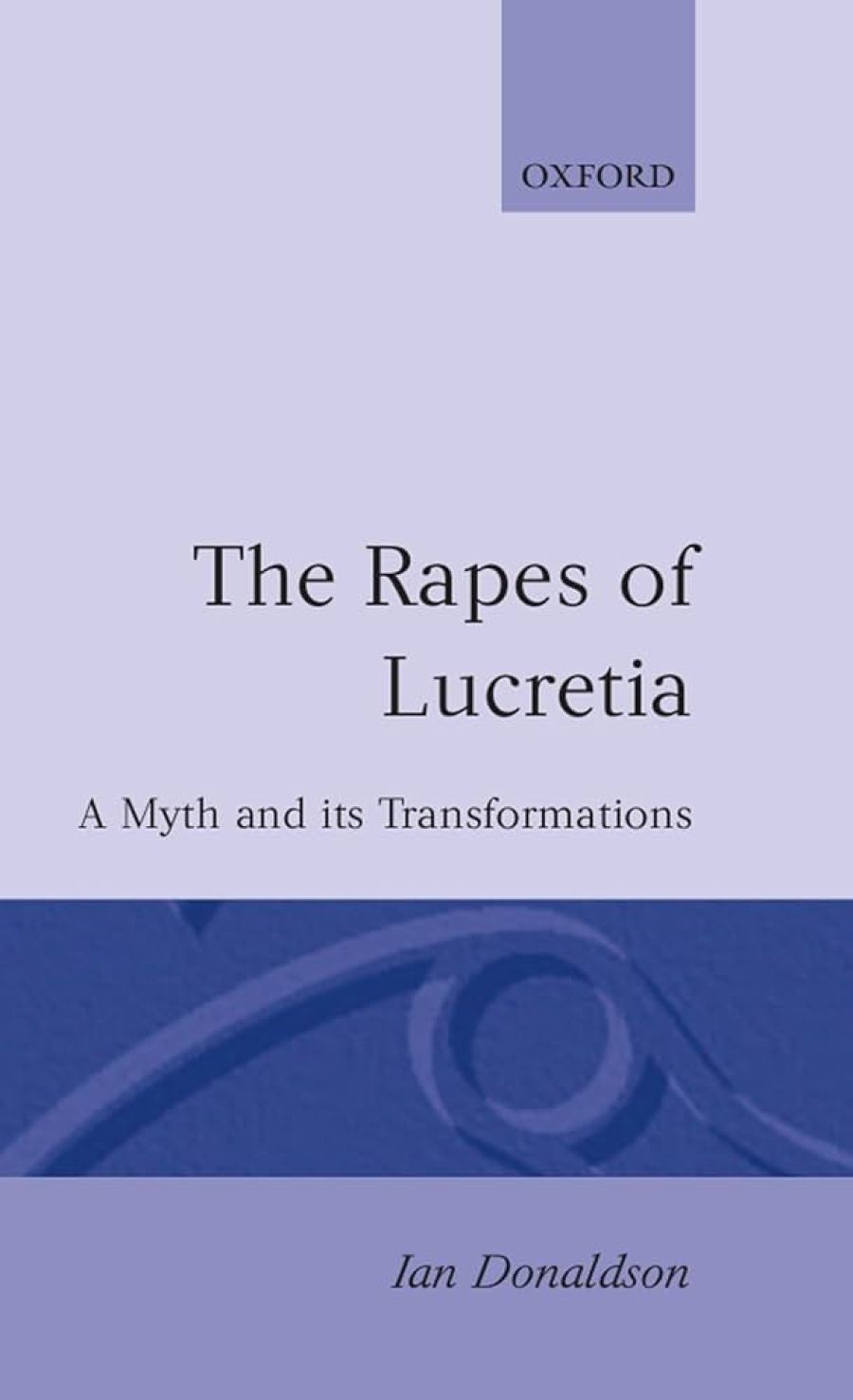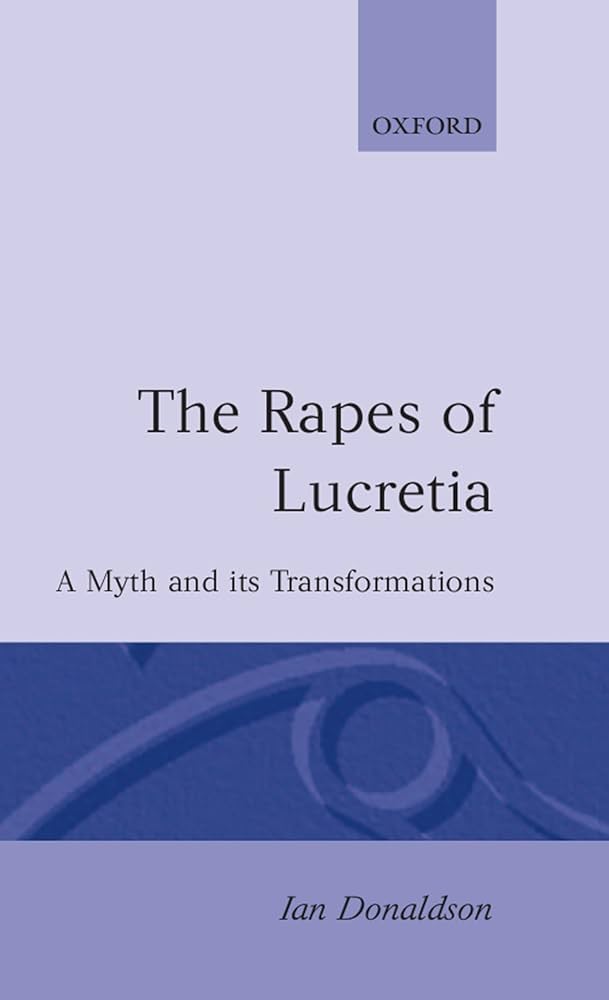
- Free Article: No
- Contents Category: Literary Studies
- Review Article: Yes
- Article Title: A regenerator of myth
- Online Only: No
- Custom Highlight Text:
Ian Donaldson’s The Rapes of Lucretia is a book so rich in ideas that a review can only be unfairly perfunctory. It starts from ancient accounts of the rape of Lucretia and tracks the transformations of the myth through two millennia. This is no wearisome catalogue, no tedious grinding of PhD mills. Donaldson is, as he puts it, “especially interested in the close relationship that may exist between the creative and the philosophical processes of mind; between art and argument”. What emerges is a sturdy contribution to the history of ideas, a book showing how a myth which sustained Roman ideas of heroism and political liberty was used at different periods of history to reflect and embody changing political and sexual ideas.
- Book 1 Title: The Rapes of Lucretia
- Book 1 Biblio: OUP, 203 pp., index, $37.50 0 19 812638 7
- Book 1 Cover Small (400 x 600):

- Book 1 Cover (800 x 1200):

Donaldson’s use of visual sources is impressive. He is the most useful sort of art critic, showing the reader how a painting works and what to look at. The twenty plates are monochrome and of undistinguished quality. It is largely as a result of Donaldson’s analysis that we are able to assess their significance as myth-making images.
Rape is a constant of ancient literature, particularly the divine rape of mortal women, who are consoled by bearing demigod children. But the Lucretia rape is a special kind. All our sources are long after the supposed event and reflect the politicisation of shadowy happenings. For the Romans Lucretia is the perfect example of self-sacrificing heroism. But, as Donaldson is quick to point out, the story soon shifts from the private agony and bravery of Lucretia to the public politics of Brutus. The rape becomes the ‘cause’ of the expulsion of the kings and the gaining of political liberty.
Once the Christians get to work on the myth they raise awkward questions about the ethics of suicide. The Roman respect for suicide was difficult for Christians. Augustine poses a mean-minded theological dilemma: “If Lucretia is adulterous why is she praised? If chaste why is she put to death?”
Chapter 5 is about the inversion of the myth, about making comedy out of rape. It is a cool and courageous chapter which comes to an important conclusion: “The tragic versions of the myth tend to present Lucretia as a saint; the comic versions, as a whore. The two views, equally dehumanizing in their different ways, are not so radically opposed as might at first appear. Both are products of male thinking; both present women according to popular stereotype”. This observation, together with Donaldson’s demonstration of how the myth is shifted from the woman’s world to the man’s, suggests that even the inverted myth helps to sustain the myth.
At the end of the book Donaldson is gloomy. He finds that in contemporary society the word “hero” has been “drained of its moral sense”. He also regrets that the Lucretia myth is now neglected as a result of the decline in classical knowledge.
But a book like this may itself act as a regenerator of the myth. We may look to the dissidents to provide us with moral heroes. Certainly there must be feminists who would want to rescue Lucretia from the hands of men who have so aggressively transformed and shifted her story. Modem writers envy other generations which had a rich mythological tradition, but the twentieth century can still explore those older traditions – think of how many transformations of Euripides find their way on to the contemporary stage. And how many playwrights are already working on Koestler’s suicide, in its own way as suggestive as the suicides of Socrates or Lucretia or Cato or Petronius?


Comments powered by CComment